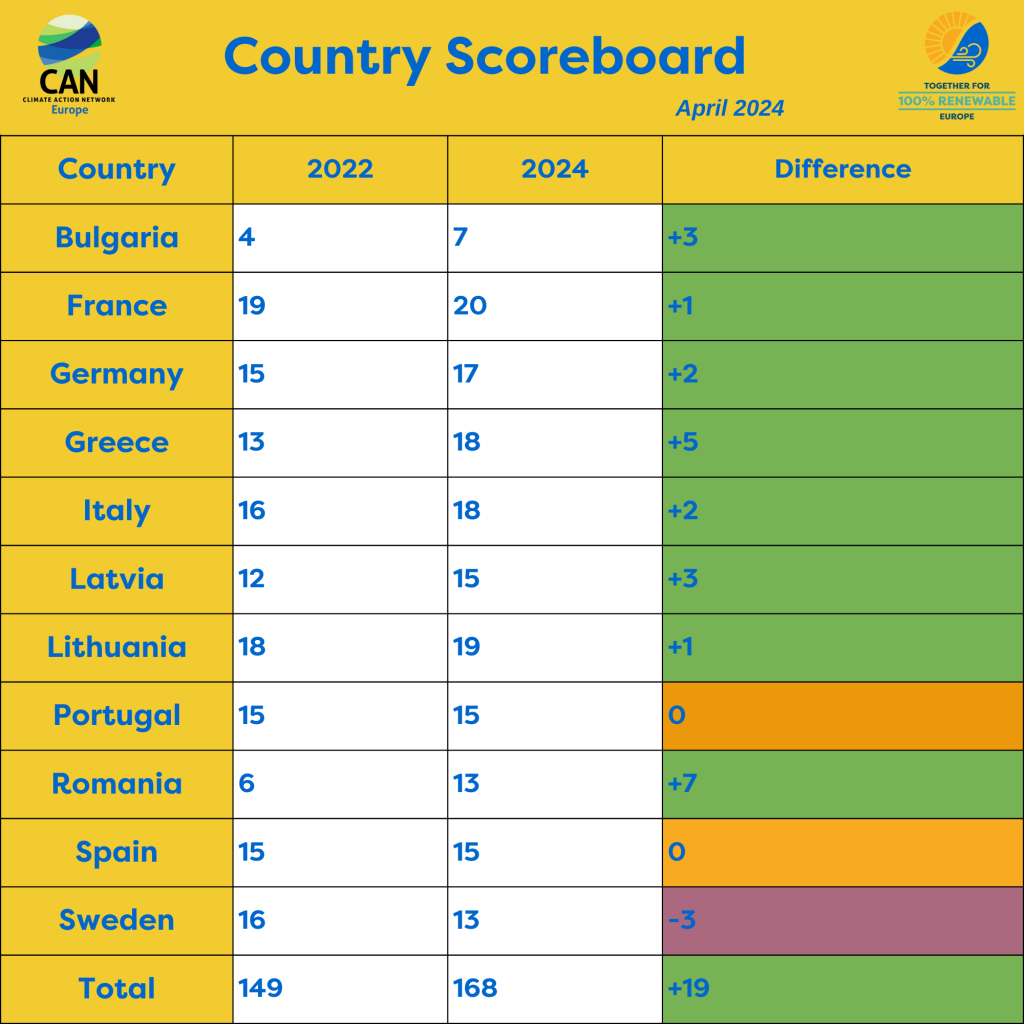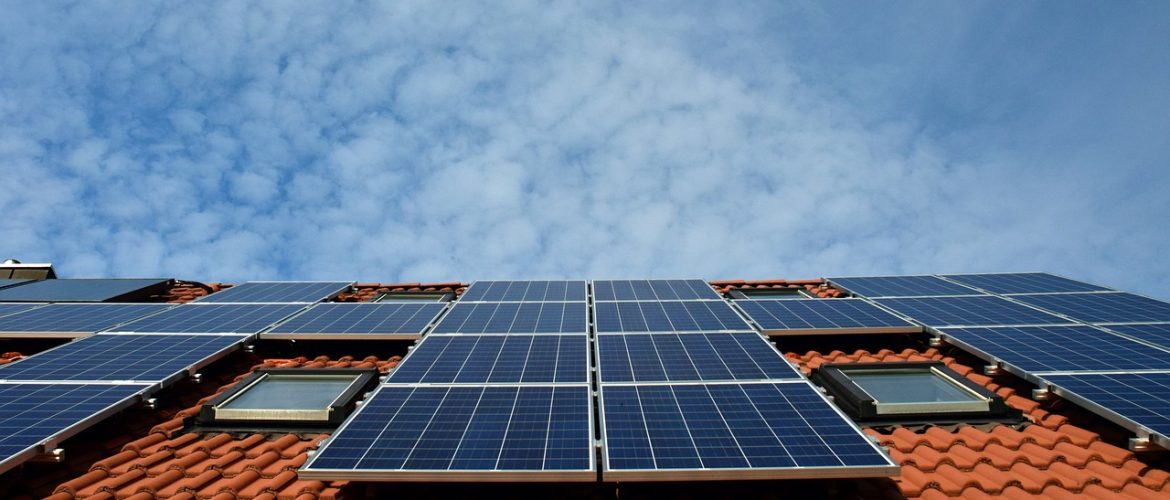Despite the strong growth and demand for rooftop PV, EU Member States are lagging behind, according to the updated report “Engaging citizens and local communities in the solar revolution – An Update” for 11 countries (Bulgaria, France, Germany, Greece, Spain, Italy, Latvia, Lithuania, Portugal, Romania, and Sweden).
The updated report was published by Climate Action Network (CAN) Europe, with contributions from Green Tank. It comes almost two years after the launch of the EU’s Rooftop Solar Initiative and the Solar Energy Strategy in the REPowerEU Package.
One of the report’s key findings is that Residential Rooftop Solar installations have soared across the EU, growing by 54% year-on-year. However, many Member States still lack a clear strategy for rooftop solar, grid capacity and skilled workforce to keep up with demand.
Out of the 11 EU Member States examined, France and Lithuania stand out for their facilitation of potential rooftop solar PV growth, despite France lagging behind in the number of rooftop solar PV being deployed.
Greece and Romania have improved the most since 2022, but the latter still remains one of the laggards, along with Bulgaria, when it comes to establishing an enabling environment for rooftop solar. The only country to have regressed in the last two years is Sweden.
Greece’s performance
Greece shares the 3rd place with Italy with a score of 18 out of the 11 EU Member States examined*.
 Among the positives for Greece, the ambitious target of 13.4 GW from solar energy in the NECP is mentioned, as well as the fact that it is among the countries with the largest number of energy communities. Another positive aspect is the provision of incentives and initiatives to address the problems caused by the lack of grid availability, as there is growing interest from citizens.
Among the positives for Greece, the ambitious target of 13.4 GW from solar energy in the NECP is mentioned, as well as the fact that it is among the countries with the largest number of energy communities. Another positive aspect is the provision of incentives and initiatives to address the problems caused by the lack of grid availability, as there is growing interest from citizens.
On the other hand, grid capacity constraints, delays in the implementation of smart metering and the underutilization of energy sharing hold back the country’s good progress.
“Greece has made major progress in the deployment of solar energy projects in recent years, while the interest of citizens and businesses in becoming prosumers has skyrocketed, especially during the crisis. To further boost citizen involvement in the energy transition, the State should provide additional financial incentives, reserve adequate grid space and set specific quantitative targets for self-production projects by individuals and energy communities in the revised NECP” – Ioanna Souka, The Green Tank’s data analyst.
Proposals for an even brighter future
Overall, most EU Member States have made progress towards promoting and facilitating the uptake of rooftop solar PV for households, but there is still considerable scope for progress.
Efforts to increase grid capacity, promote energy sharing and the growth of energy communities, deploy smart meters and generate further public awareness and the influx of skilled workers into the sector are deemed essential for the growth of solar PV.
Therefore, as the sector is booming, CAN Europe underlines the need for coherent strategies, enhanced governance and targeted support to harness the full potential of rooftop PV to achieve a fast and equitable transition to renewable energy with a focus on citizens and communities.
The report was published on 4 April 2024 and is available in English here.
More information on each country’s performance is available here.
* The scoring of the Member States is based on qualitative information from The Green Tank and other CAN Europe member organisations. Each of the 11 Member States is assessed against the six key areas of interest: governance, incentives & support schemes, permitting procedures, energy sharing & collective self-consumption and energy communities, along with any additional measures that the country is or is not implementing (e.g public awareness campaigns, training programmes to tackle a shortage of skilled workers in the sector, the rollout of smart meters to households).



















































































































































































































































































































